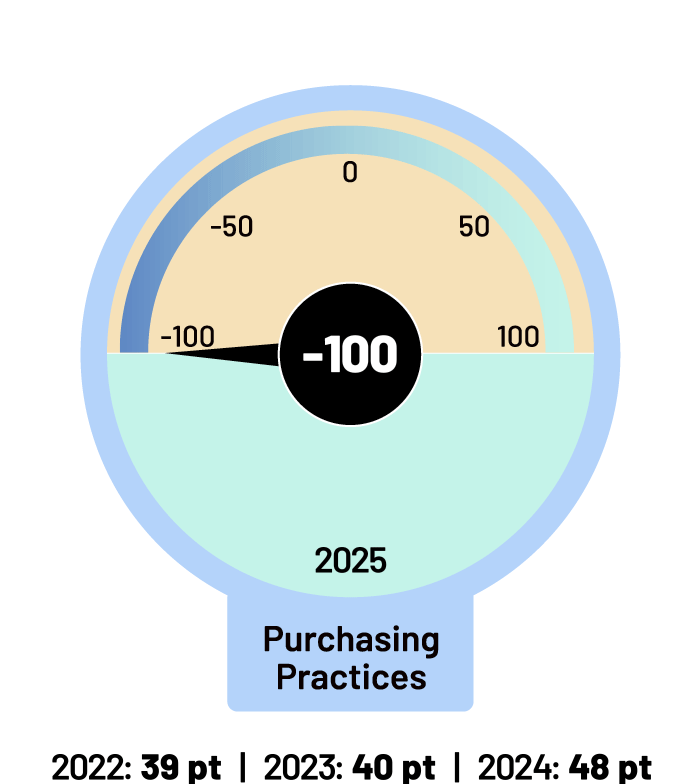Data to Drive Social, Commercial and Environmental Transformation
To realise our vision of a just and resilient garment sector, TIWW has developed a set of industry-wide metrics to measure progress of the sector and galvanise action across the social, commercial and environmental spheres.
The Industry Dashboard features the fourth and final cycle of industry-wide scores on three critical issues: the wage gap, purchasing practices, and GHG emissions.
The dashboard has been created in partnership with our data partners: WageIndicator Foundation, Better Buying Institute (BBI), the Apparel Impact Institute (Aii) and Cascale. to present annual impact metrics. It synthesises extensive wage data on 28 major garment-producing countries, feedback from more than 1000 suppliers across 63 countries and new estimates of apparel sector emissions.
This dashboard can be used to drive better data, stimulate progress, support alignment and encourage information exchange, collaboration and inform policy change where necessary.



